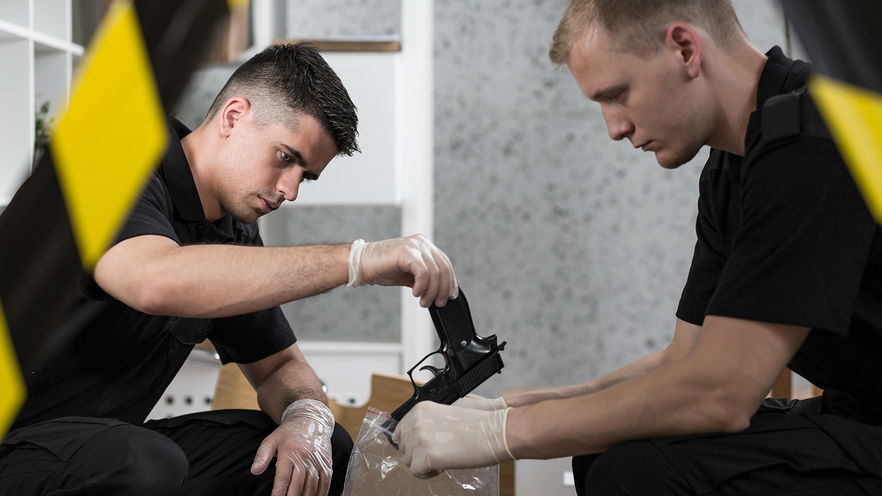An allegation of domestic violence is a strong and negative charge against anyone’s character. If you are charged with any crime of domestic violence, arrange at once to meet with an experienced Long Island domestic violence attorney.
All fifty states, as well as the District of Columbia, have provisions allowing the courts to issue protection orders to the alleged victims of domestic violence. How do protection orders work in the state of New York?
WHAT DOES A PROTECTION ORDER DO?
Survivors of domestic violence may seek a protection order to guard themselves against further victimization. Although a protection order may not prevent an abuser from stalking or even hurting a victim, the protection order allows a victim to have the abuser arrested if it is violated.
In New York, the state’s family courts and criminal courts have simultaneous jurisdiction over “family-related” offenses such as assault, stalking, menacing, and sexual misconduct and abuse.
Domestic violence is now commonly defined to include all acts of physical, psychological, sexual, or economic violence committed by a family or household member or by an intimate partner against another member of the family or household or against the other intimate partner.
WHAT ARE THE RIGHTS OF DOMESTIC VIOLENCE VICTIMS?
Domestic violence victims in the state of New York may bring civil charges in family court, criminal charges in criminal court, or concurrent actions in both courts.
Victims may also apply for an order of protection from either court – an order that tells a defendant to stay away from the victim and the children involved.
WHAT CAN A PROTECTION ORDER COMPEL SOMEONE TO DO?
An order of protection may also tell an alleged abuser not to threaten, injure, or harass you, your family, or any other person or persons named in the order. It may additionally include, but is not limited to, orders notifying the alleged abuser to:
1. move out of your residence
2. obey the court’s child custody order
3. obey the court’s child support order
4. stay away from you and your children
5. surrender any firearms that the alleged abuser may possess
An order of protection attempts to compel an alleged abuser to behave without aggression or active violence against the individual who sought the protection order. In a mutual order of protection, both parties request the same type of protection – from one another.
WHO QUALIFIES TO SEEK AN ORDER OF PROTECTION?
If you are the victim of domestic abuse, to obtain an order of protection in a New York family court, your relationship to the alleged abuser must fall into one of these four categories:
1. The alleged abuser is a current or former spouse.
2. The alleged abuser is the other parent of your child.
3. The alleged abuser is a family member related to you by blood or marriage.
4. The alleged abuser is someone you have or have had an “intimate relationship” with.
Legally speaking, an intimate relationship is not necessarily a sexual relationship. It depends on a number of factors. When a petition for a protection order is received, the court will determine if the relationship in question is, in the court’s opinion, “intimate.”
WHAT CAN HAPPEN IF SOMEONE VIOLATES A PROTECTION ORDER?
If you violate a protection order in the state of New York, you can face a contempt charge that may be prosecuted as a misdemeanor or as a felony depending on the details and extent of the violation:
1. Criminal contempt in the second degree is a Class A misdemeanor punishable upon conviction by up to a year in jail and/or a fine of up to $1,000.
2. Criminal contempt in the first degree is a Class E felony punishable upon conviction by up to four years (and a minimum of one year) in prison.
3. Aggravated criminal contempt in the first degree is a Class D felony punishable upon conviction by up to seven years (and a minimum of one year) in prison.
A judge may order a convicted offender to attend “anger management” classes or to seek treatment for drug or alcohol issues.
WHAT ELSE CAN HAPPEN WHEN A PROTECTION ORDER IS ISSUED?
When mutual orders of protection are requested and issued, a New York family court judge may also modify the court orders dealing with a couples’ child support, custody, and visitation privileges.
These matters may surface when mutual orders of protection are issued because no interaction will be allowed between the parents.
Mutual orders of protection are typically issued when both parties have presented evidence of domestic abuse or violence and when the court determines that both parties acted aggressively and not primarily out of self-defense.
IF YOU ARE ACCUSED OF DOMESTIC VIOLENCE, WHO CAN HELP YOU?
If you are charged with a crime of domestic violence or with the violation of a protection order on Long Island or anywhere in New York City, you’re going to need the help of a criminal defense attorney.
Aside from the criminal penalties, a conviction for a domestic violence crime can also affect:
• your future job opportunities
• your right to own or carry a firearm
• your right to earn or maintain a professional license
• the court’s child custody orders and provisions
In no way is an order of protection – or any criminal charge of domestic violence – the equivalent of a criminal conviction. A false domestic violence claim can usually be discredited by a good defense attorney.
Self-defense and the defense of personal property are also sometimes offered as defenses to domestic violence charges, but having the charges dismissed, or winning an acquittal from a trial jury, will require the knowledge and skills of a talented domestic violence attorney.
WHAT IF THE ALLEGATION AGAINST YOU IS FALSE?
Domestic violence accusations are taken seriously by the authorities in New York. Nevertheless, lawyers and judges have seen plenty of false accusations in domestic violence cases.
If you’re charged with a crime of domestic violence in New York, a court may issue a protection order, and you could even be barred from your own home. If the accusation is fabricated, who can help you?
If you are charged with a domestic violence crime, or if you are named in a protection order, speak to an experienced Long Island domestic violence attorney at once. A good criminal defense attorney’s help is your right.















Comments are closed.